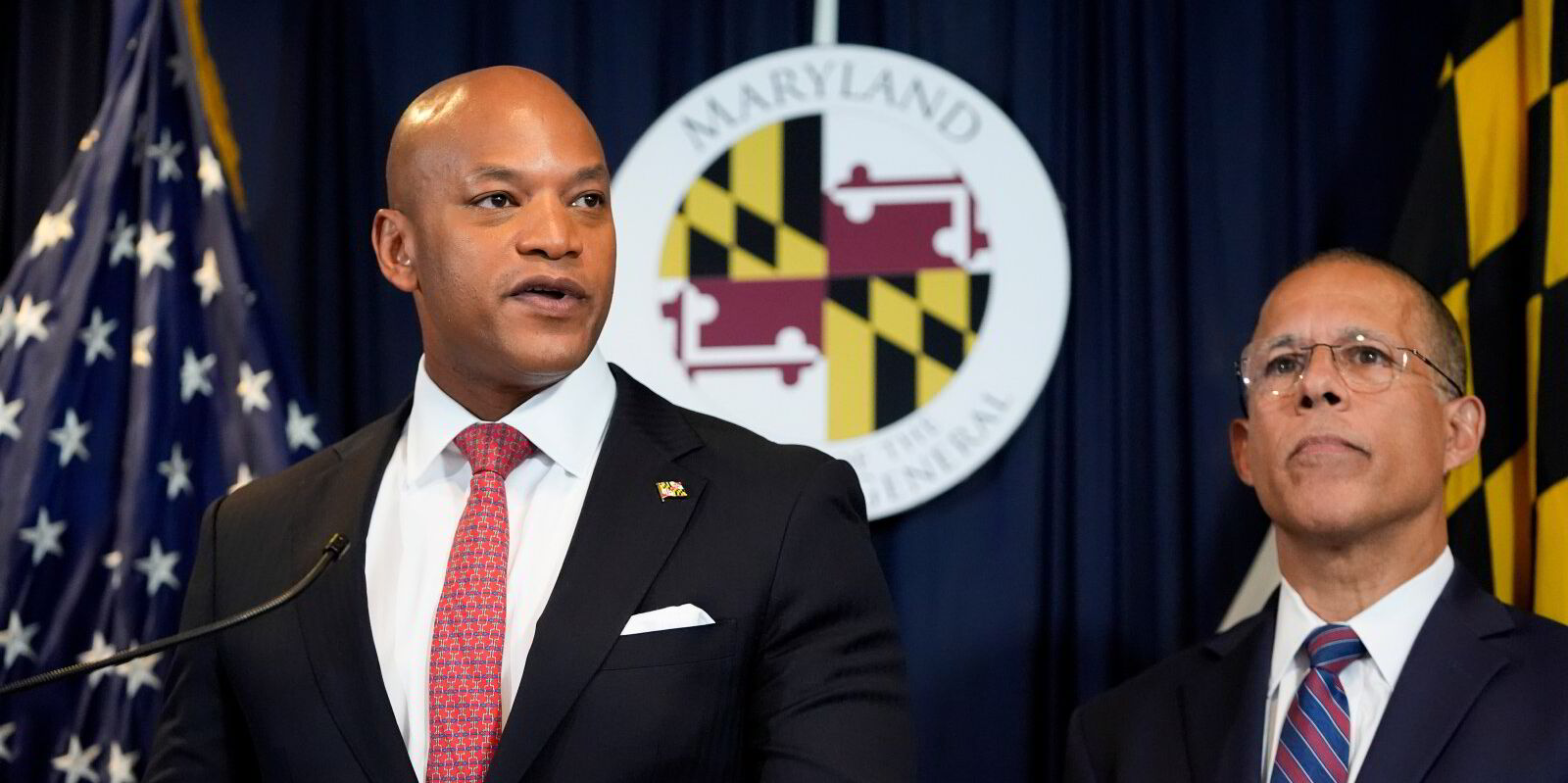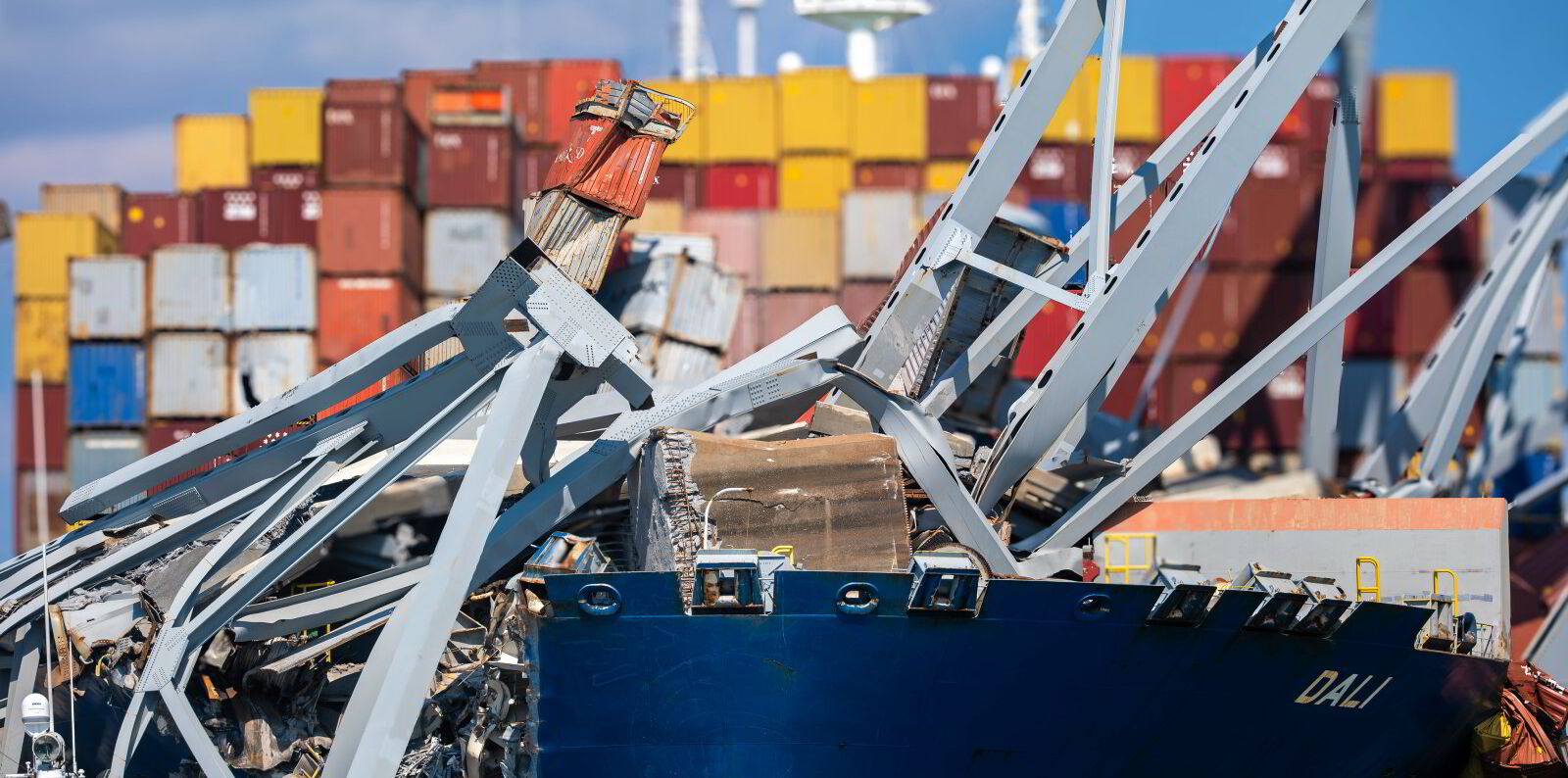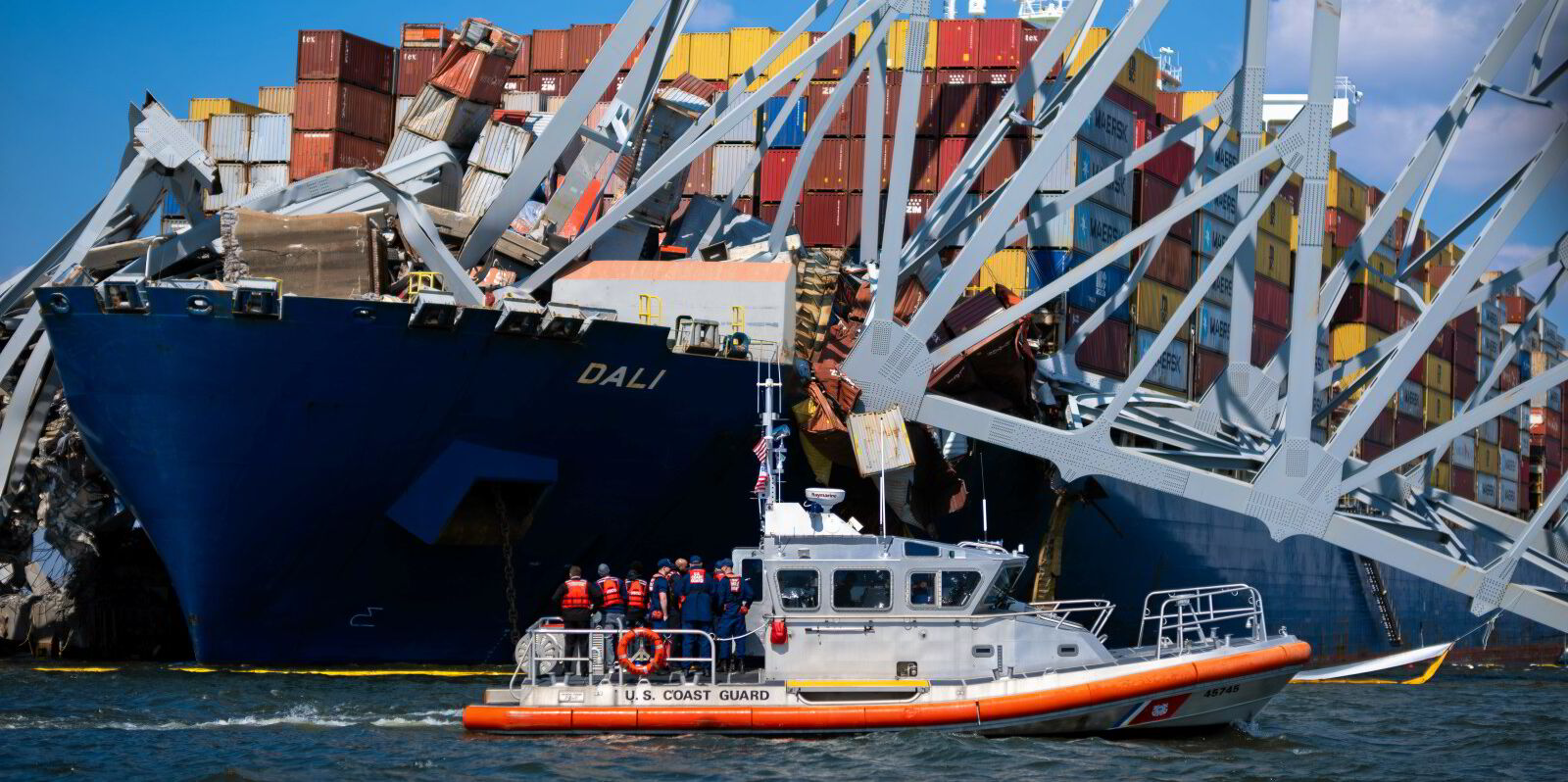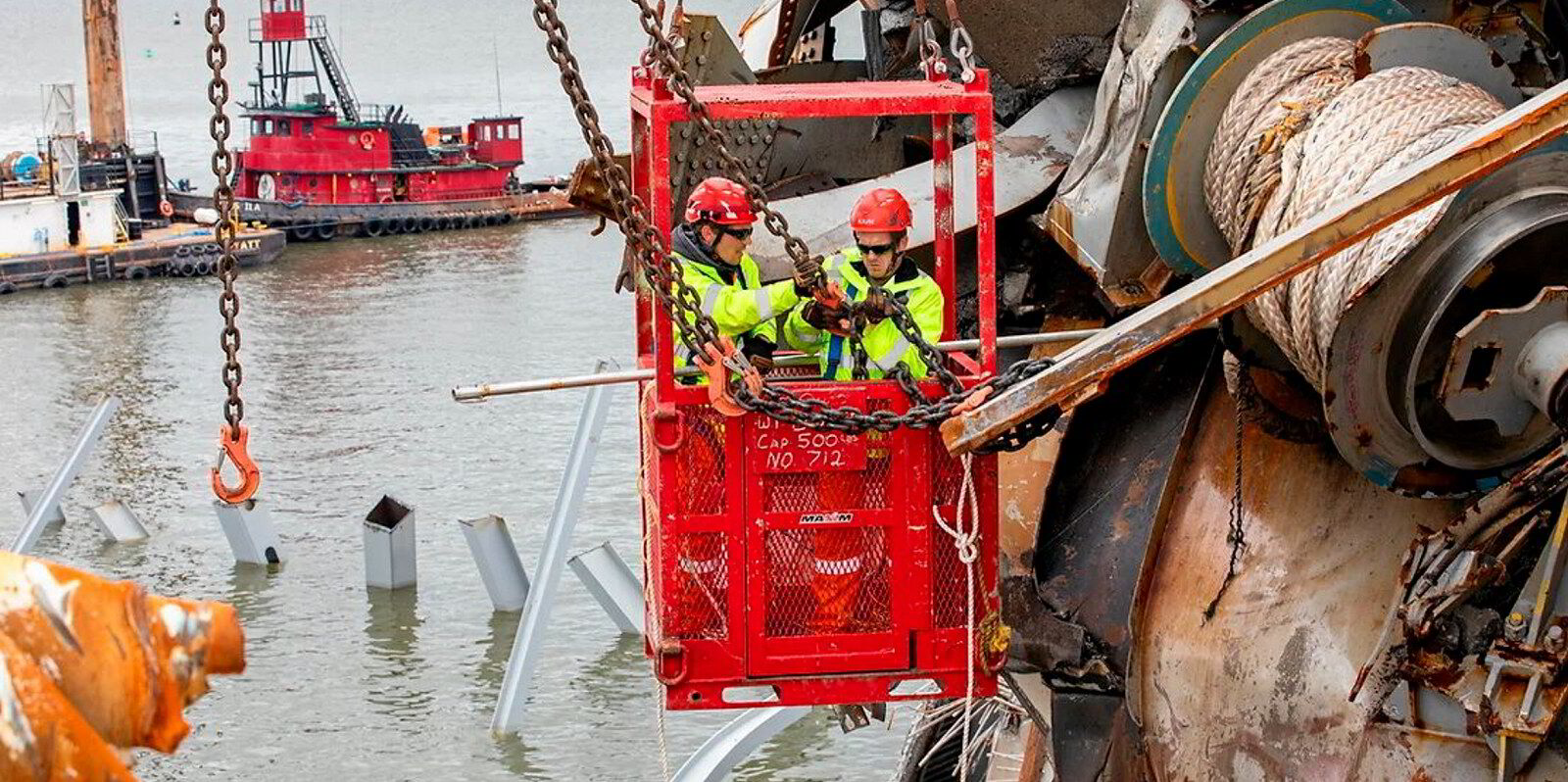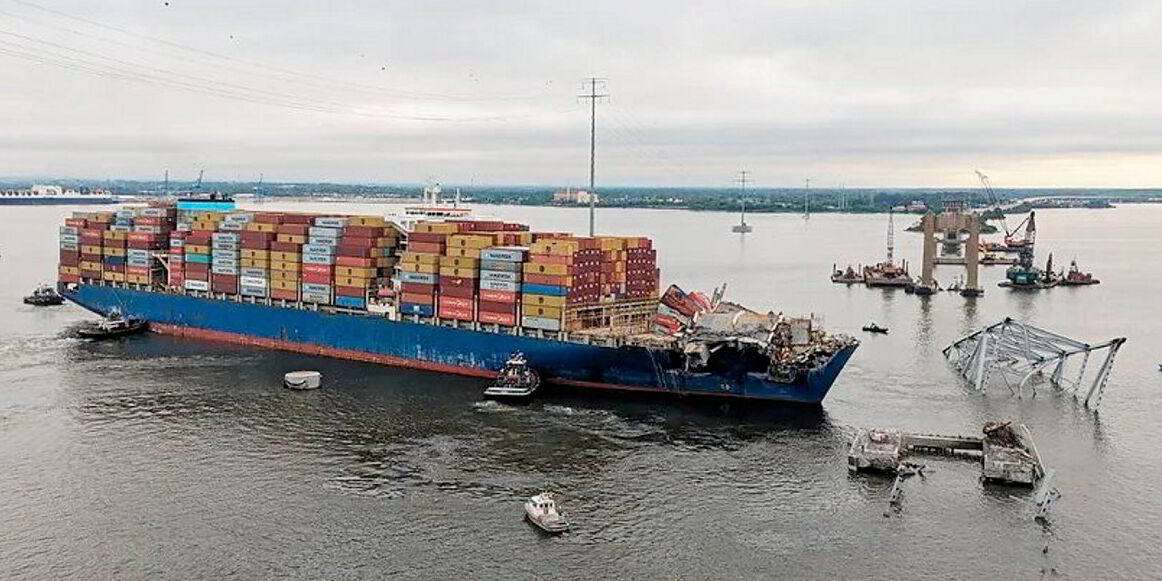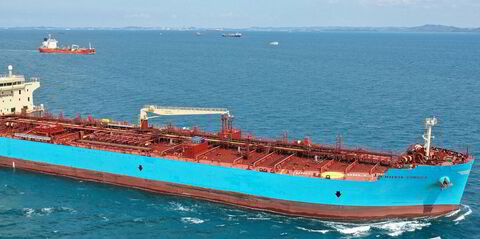The US state of Maryland has filed a vast bill for damages against the owner and operators of the container ship that destroyed a bridge in Baltimore just before the six-month deadline was reached for claims from the disaster.
The state is seeking damages to replace the bridge — an undertaking estimated to cost at least $1.7bn — and for a slew of other costs.
They include lost tax revenues, emergency response costs, environmental damage and additional wear and tear costs to the state’s roads because of traffic diversions.
The claim was one of many filed on the final day allowed six months after the 9,962-teu Dali (built 2015) hit and brought down the Francis Scott Key Bridge in Baltimore.
The accident left six construction workers dead and blocked maritime traffic at one of the key ports in the region.
The claims lodged with a Baltimore court highlight the scale and cost of disruption from the accident that closed a vital waterway for weeks and the matter is set to rumble on for years through the US courts.
The claims range from the unspecified but “massive” sums requested by Maryland to the $103m demanded by the US government and multimillion-dollar claims from shipping companies affected by the incident.
MSC Mediterranean Shipping Company has lodged a claim for damages linked to more than 1,400 of its containers on the Dali with an estimated value of $3.3m, according to court papers. Israeli liner operator Zim put in a similar claim.
The claims also highlight the impact on citizens whose lives have been affected by the delays to shipments and the impact from the broken bridge.
The families of the dead workers have brought claims along with US dock workers and local businesses seeking to retrieve lost earnings.
One insurance company is claiming $20,000 for a car that was stuck on the bridge at the time of the accident.
An Australian father has put in a claim for about $4,000 after being forced to replace a baby swing and clothes that were stuck on the Dali after relocating his family to the US.
But the largest claim is from Maryland state authorities who oppose the bid by shipowner Grace Ocean and manager Synergy Marine to limit their liability to less than $44m using an 1851 US law.
‘Entirely preventable’
TradeWinds reported on Wednesday that Grace Ocean and the International Group of P&I Clubs had appointed a Washington lobbyist following moves to change liability laws that would date back to the Dali disaster.
Maryland claims that the accident was “entirely preventable” and blamed a power failure on a long-standing vibration problem on the ship that damaged transformers and led to a loose connection that caused the first power failure.
It claims that power was not restored because the “ship’s management and crew intentionally circumvented critical safety features”.
It says the Singapore-based owner and operator knowingly sent an unseaworthy vessel into US waters.
The state’s attorney general, Anthony Brown, said: “Maryland will rebuild the Francis Scott Key Bridge, but Marylanders should not have to pay for the Dali owner’s and manager’s negligence and incompetence.”
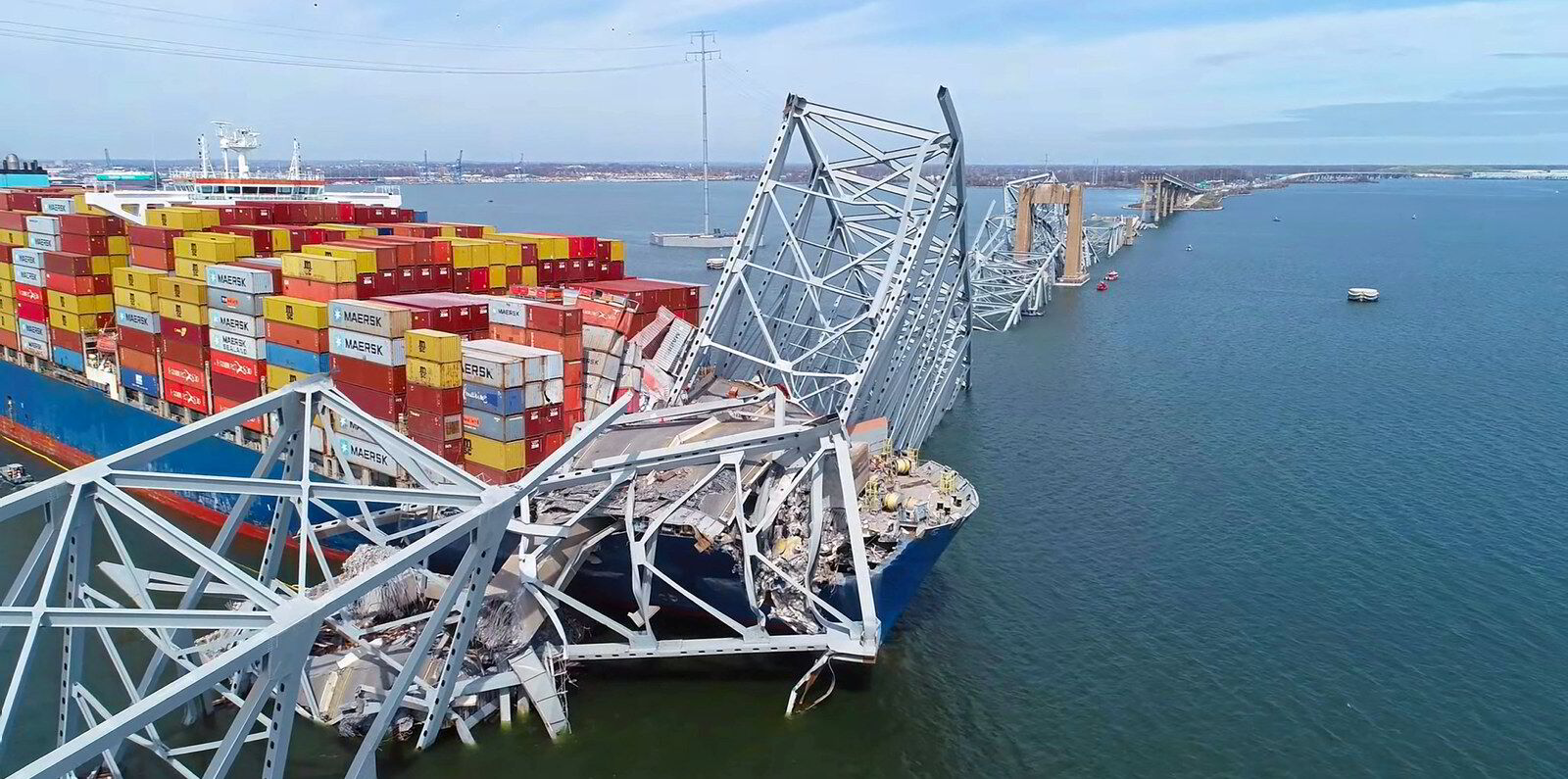
The state said that it had suffered a “massive amount in damages” that were still being calculated.
The total liability cap sought by Grace Ocean would “not come close” to covering the losses, it said.
The state was asking the court to hold the owner and operator “fully accountable for their negligence, mismanagement and incompetence”.
Darrell Wilson, a spokesman for Synergy and Grace Ocean, said: “The owner and manager will have no further comment on the merits of any claim at this time, but we do look forward to our day in court to set the record straight.”
The position of Maryland follows similar claims by the US government last week. It said electrical and mechanical systems were improperly maintained and configured, violating safety regulations.
The recent history of cases suggests that the shipowner and operator will have a difficult task to limit liability.
In the past decade, 23 such claims have been denied, while only seven have been accepted, according to an analysis of liability cases by Dominic Dewey published in the Loyola Maritime Law Journal.
If the companies are unsuccessful in limiting their liability, the Dali’s P&I club, Britannia, will shoulder the first $10m and the clubs’ pooling arrangement for major losses would account for the next $90m, with the reinsurers set for the rest.
The impact on the reinsurers has fed through to negotiations for next year with broker Marsh predicting a 15% to 20% increase in costs when the International Group renews its reinsurance contract on behalf of its 12-strong membership in February.
Read more
- Star Bulk and Navision Shipping invoke Exxon Valdez law to lodge claims in Dali case
- How Exxon Valdez law could sway the damages awarded in Baltimore bridge legal battle
- Baltimore bridge disaster could hike reinsurance bill by up to 20%, warns broker Marsh
- FBI and US Coast Guard board second Synergy Marine vessel in Baltimore
- Wrongful death claims filed in Dali legal row over workers who fell to death
